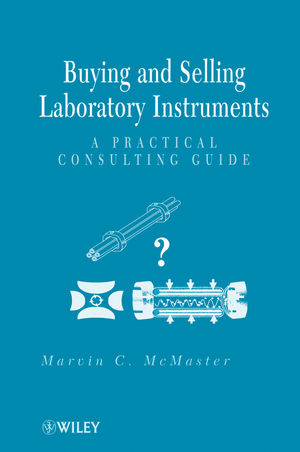Buying and Selling Laboratory Instruments: A Practical Consulting GuideISBN: 978-0-470-40401-0
Hardcover
176 pages
July 2010
 This is a Print-on-Demand title. It will be printed specifically to fill your order. Please allow an additional 10-15 days delivery time. The book is not returnable.
|
||||||
Searching for the best laboratory instruments and systems can be a daunting and expensive task. A poorly selected instrument can dramatically affect results produced and indirectly affect research papers, the quality of student training, and an investigator's chances for advancement. Buying and Selling Laboratory Instruments offers the valuable insights of an analytical chemist and consultant with over four decades of experience in locating instruments based upon both need and price. It helps all decision makers find the best equipment, service, and support while avoiding the brand-loyalty bias of sales representatives so you can fully meet your laboratory's requirements.
The first section of the book guides buyers through the hurdles of funding, purchasing, and acquiring best-fit instruments at the least-expensive price. It explains how to find vendors that support their customers with both knowledgeable service and application support. Also offered is guidance on adapting your existing instruments to new applications, integrating new equipment, and what to do with instruments that can no longer serve in research mode.
The second section explains the sales process in detail. This is provided both as a warning against manipulative sales reps and as a guide to making the sale a win-win process for you and your vendor. It also shows you how to select a knowledgeable technical guru to help determine the exact system configuration you need and where to find the best price for it. Added bonuses are summary figures of buying sequence and sales tools and an appendix containing frequently asked questions and memory aids.
Buying and Selling Laboratory Instruments is for people directly involved in selecting and buying instruments for operational laboratories, from the principle investigator to the person actually delegated with investigating and selecting the system to be acquired. Sales representatives; laboratory managers; universities; pharmaceutical, biotech, and forensic research firms; corporate laboratories; graduate and postdoctoral students; and principle investigators will not want to be without this indispensible guide.



